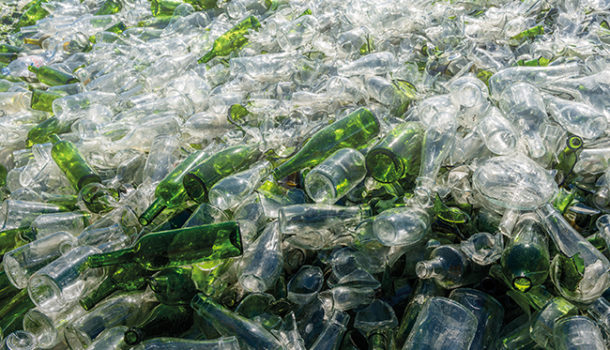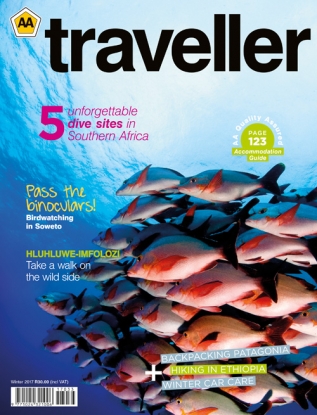Long before ‘Reduce, Reuse and Recycle’ became the mantra of environmentalists, Swaziland’s Ngwenya glass was quality turning rubbish into beautifully handcrafted objects. Marion Whitehead speaks to Chas Prettejohn about his family’s business
Is the glass really greener on your side, or is this just marketing hype?
We have been recycling glass bottles since 1987, long before it was the cool thing to do. It takes a lot of energy to melt glass in our furnace (at 1 250°C ) for our glass-blowers to use to create our famous African animals, vases and bowls with.
When we first started out, we used diesel, but now we use a mixture of old cooking oil, used engine oil and paraffin. We also use rainwater from our roof in the manufacturing process and old newspapers in our production and for packaging.
Any other aces up your green sleeve?
We’ve developed a machine that crushes coloured bottles, old window panes and our waste glass into sand that is used to manufacture building blocks. The glass sand replaces sand that would have been dug out of river courses.
Can you make quality products from recycled glass?
Absolutely! The glass we recycle generally comes from clear soda-lime glass bottles made in South Africa. Glass is one of the few materials that can be recycled many times without losing any of its properties.
How big a difference can recycling make in your area?
You’d struggle to find a piece of clear glass lying around within 100 km of our factory. We have been around for 28 years, so people know that bottles have a value and that they can bring them to us.
The engine oil collected from motor dealers and engineering shops, as well as the old cooking oil we use, was previously thrown down the drain, or into landfills, as were all the newspapers. We believe we have made a huge difference in our small part of the world!
Isn’t going the green route more expensive for a business?
For us, it’s just the right thing to do; one cannot put a cost on trying to prevent our planet from becoming filthy and polluted. We have managed to create a profitable business and help save the planet at the same time.
You are Swazi Fair Trade accredited; what about community projects?
We have many initiatives, from helping the local health clinic with infrastructure to organising an annual mountain-bike race, which raises funds to build bridges across rivers, and purchase blankets and school shoes for local kids. A percentage of all our worldwide sales is donated to Mkhaya Game Reserve, a refuge for endangered species.
Why did you get involved with Mkhaya Game Reserve?
In the 1980s, when black rhino were re-introduced to Swaziland by Ted Reilly from Big Game Parks and the owners of Mkhaya Game Reserve, they had a huge problem with poaching; so, as nature lovers, we decided we would like to help.
We created the Ngwenya Rhino and Elephant Fund. In the beginning, the money was used for two-way radios for rangers and towers that were manned 24/7 to keep a lookout for poachers. Our king has also enacted some of the
best anti-poaching laws in the world.
I hear the Swazi king shops at Ngwenya Glass…
As head of state, on his official visits around the world, HM King Mswati III often gives Ngwenya Glass products as gifts to his hosts. Generally, he buys our art glass bowls, vases and chess sets. When he travelled to the US last year, he took one of our colourful decorative glass potjie pots in the red, blue and yellow colours of the Swazi flag for President and Mrs Obama, as well as a beer mug with a pewter handle.
MAKE CONTACT
Tours of the Ngwenya Glass factory, 5 km from the Oshoek/Ngwenya border post, are a popular tourist attraction. www.ngwenyaglass.co.sz , +268 244 24053 / 24142 / 24151, ngwenya@ngwenyaglass.co.sz
There is also a shop in the Watershed at the V&A Waterfront in Cape Town.
021 418 0654
Photography www.ngwenyaglass.co.za, Galloimages/Thinkstock
(This article was first published in the spring 2015 issue of AA traveller magazine)




